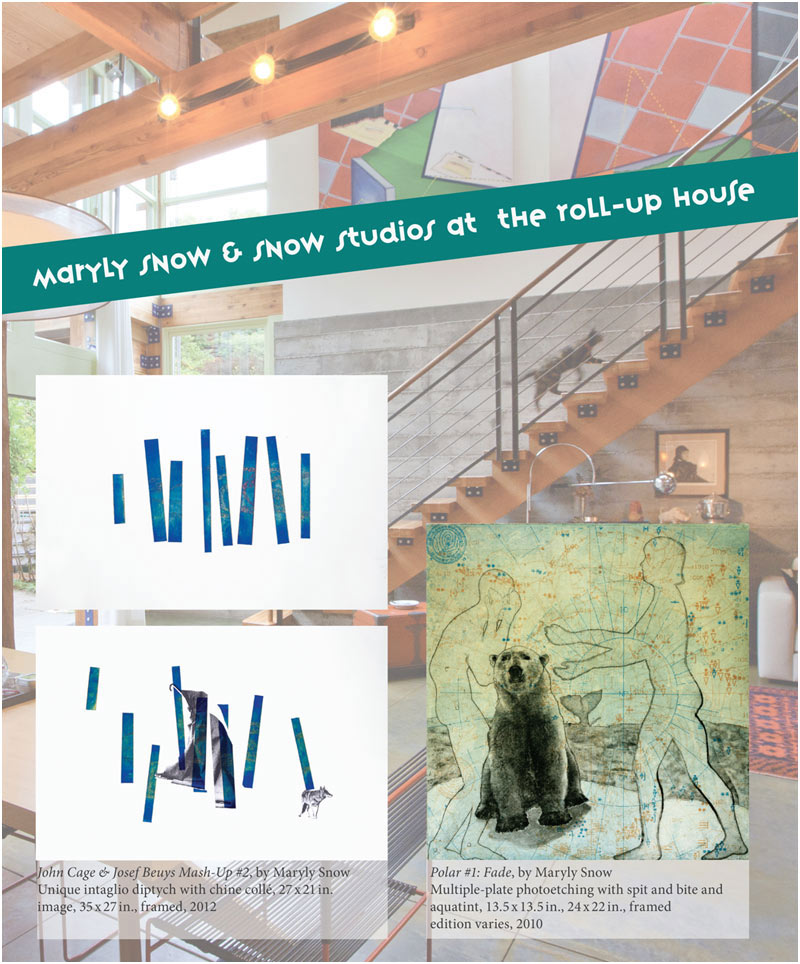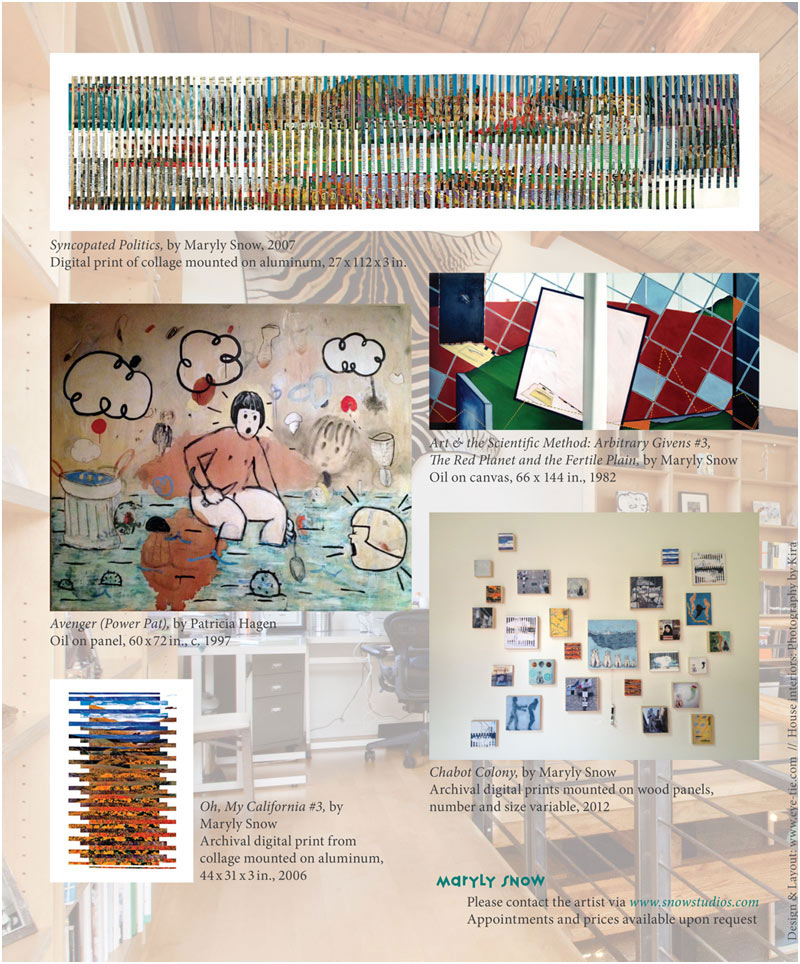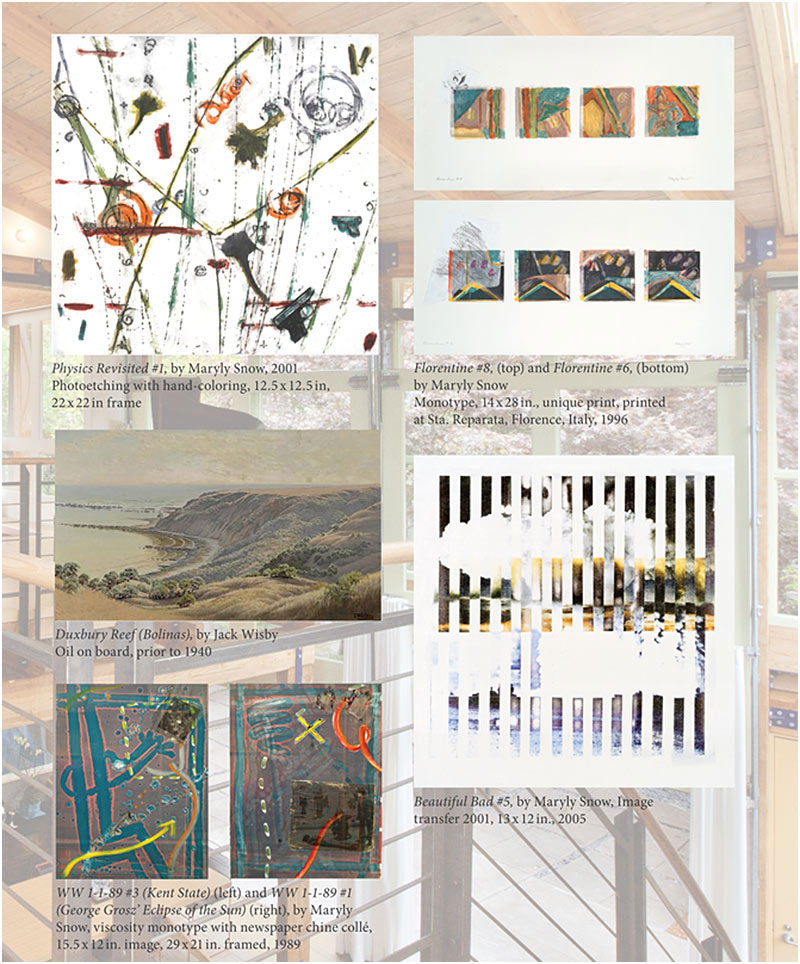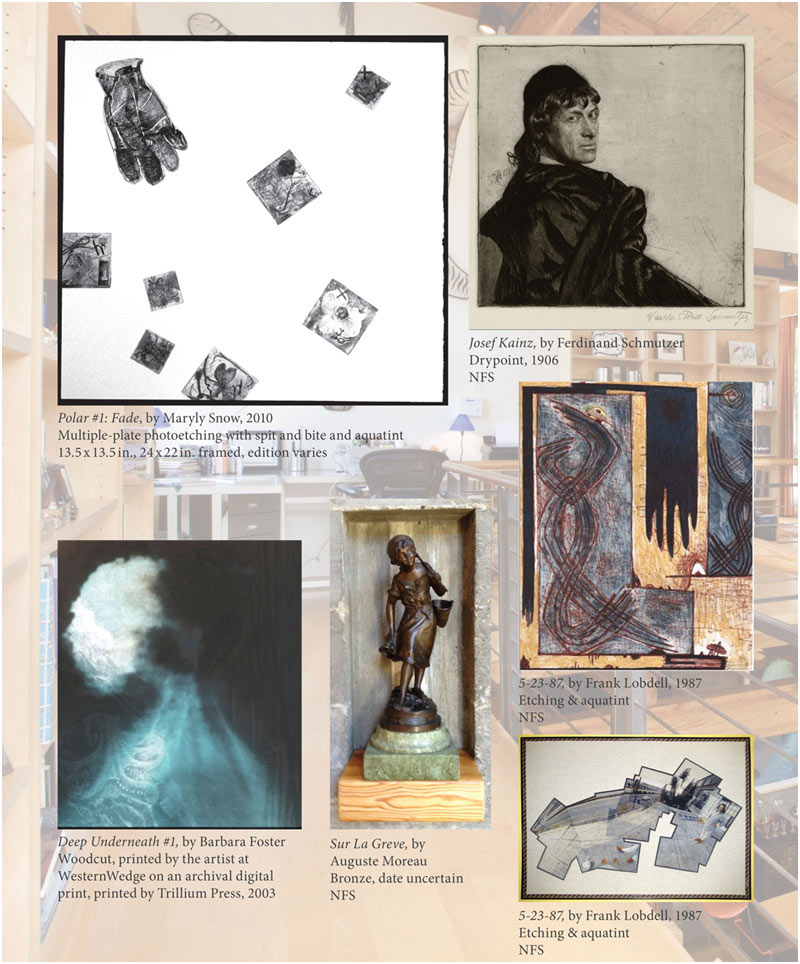Home & Garden, San Francisco Chronicle
AUGUST 9, 2013

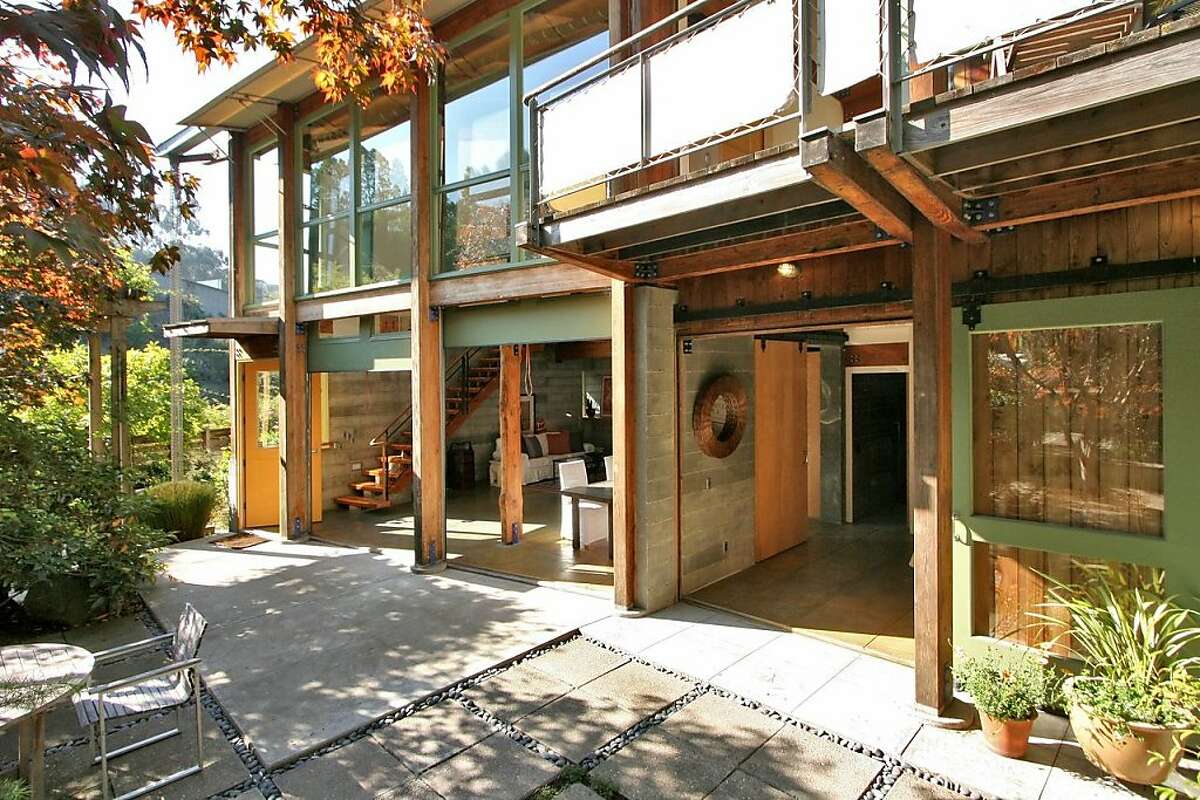
When Oakland artist Maryly Snow spotted her home in a Chronicle Walk-Through column almost two years ago, she didn’t think she was in the market to buy a house. But reading the article led to a phone call to her real estate agent, which led to an offer without visiting any other properties.
“As an artist, I have lived in warehouses for the last 35 years. The loftlike space instantly felt comfortable to me,” says Snow.
Her home in the Oakland hills is one of six East Bay homes open to the public Saturday, as part of the third annual American Institute of Architects East Bay Home Tours. Nicknamed the Roll-Up House for its indoor-outdoor design, which uses garage doors as movable walls, Snow’s property was built in 1996 and renovated in 2012 right after she finalized her purchase.
It’s just 1,600 square feet, but the airiness of the 26-foot ceilings makes the home appear grander than it really is. It’s full of raw materials like exposed concrete, wood and metal.
“It’s an internally exposed house. You get to see the braces and bolts that hold it together,” says Snow, former head of the Architecture Visual Resources Library at the College of Environmental Design at UC Berkeley.
Soon after Snow moved in, she realized that some of the home’s features needed to be updated to suit her preferences. According to Snow, the previous owners wanted a playful kitchen, but she wanted an efficient one. She enlisted the home’s previous architect, Karl Wanaselja of Leger-Wanaselja Architecture, as a consulting architect to give the property a face-lift and change the 46-square-foot kitchen and upstairs bathroom.
‘Wonderful experience’
“Even though I designed the remodels with input from Karl, I wanted to respect his creation. I had a wonderful experience collaborating with him,” says Snow, whose academic background has given her a deep understanding of architecture. “I had already designed three kitchens and have spent my career looking at architecture.”
Having been a loft dweller, Snow wasn’t used to having a yard, but she quickly took to the indoor-outdoor lifestyle. Her two gardens are a contrast in use and plant specimens, and each area is enjoyed for its entertainment and contemplative features. The patio, which connects to the interior living space, has dappled sunlight from maples and surrounding trees. Ferns, rhododendrons and other shade-friendly plants surround the space. The south side of the home that runs along the side of the property provides a sunny spot for fruit trees and flowers and supports paths and a gravel patch for a Zen-like retreat.
The value that an architect brings to a residential construction or remodeling project can’t be overlooked, says Kurt Lavenson, project chair of this year’s tour. “Architects can reinterpret the past in an older home and can respond to a site in a new construction. This year’s tour illustrates the role that the architect plays in creating an underlying order that transcends style, which is why architects are essential.”
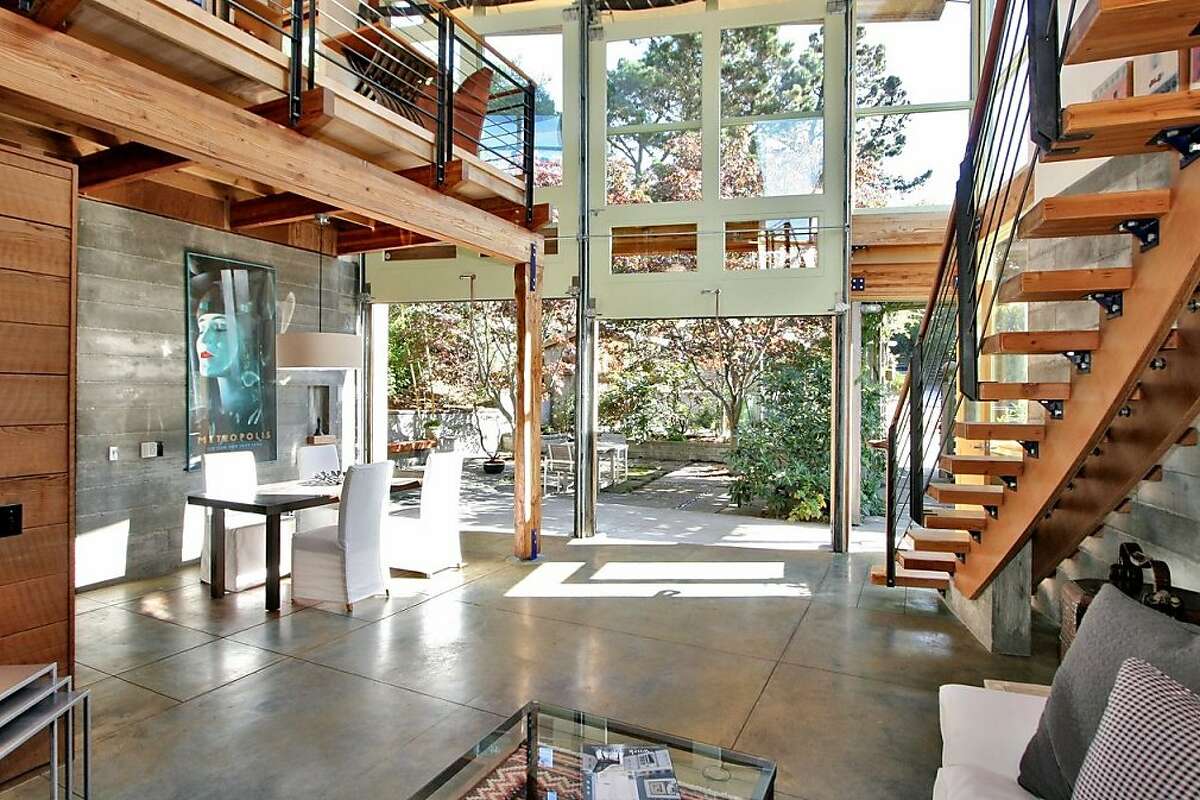
Wide variety of styles
With six varied homes on display, there’s a wide swath of styles to admire – from austerely modern to harmoniously historic and from preciously petite to vibrantly grand – reinforcing the connection between architect and homeowner.
Sidney Sweeney, executive director of the institute, sees a design trend that leans toward simplicity.
“Making things simple isn’t easy to do,” Sweeney says. When Sweeney and a panel of architects look at contenders for each year’s tour, they strive for a diverse lineup in which each house has universal appeal.
“When I look at the selection, I ask myself, ‘Will this house speak to the average homeowner?’ ” says Sweeney.
All six homes – two in Berkeley, two in Oakland and two in Lafayette – exemplify how architects deftly handle the East Bay’s varied topography. Some of the homes are perched on plateaus or positioned to appreciate panoramic and pastoral views and exhibit a strong connection to the surrounding landscape.
From a historic standpoint, East Bay architecture has had a rich fabric from which to draw. Julia Morgan, Bernard Maybeck and John Hudson Thomas laid the groundwork for many of the region’s working architects and instilled progressiveness in design, according to Lavenson.
“The politics of neighborhoods are alive in the East Bay. It forces a good architect to take the concerns of others and incorporate them into the puzzle of the overall design,” says Lavenson. “There’s a tradition in the East Bay of speaking out. Architects are the ultimate negotiators.”
Exhibition Tour Announcement
AUGUST 9, 2013
